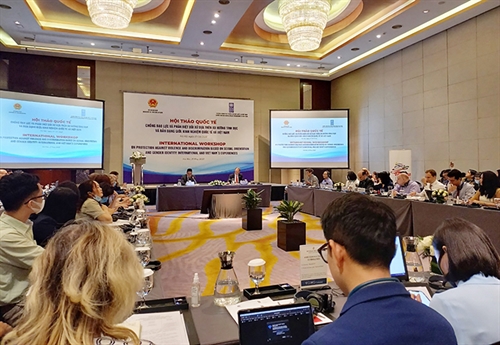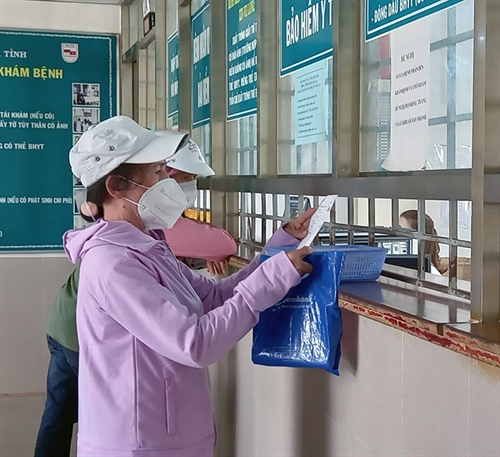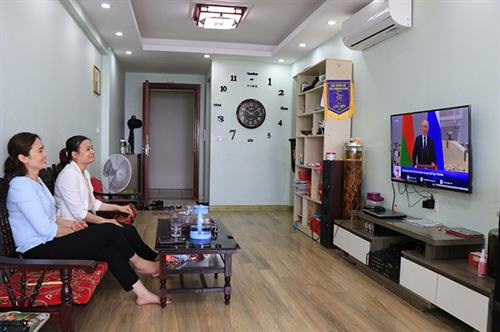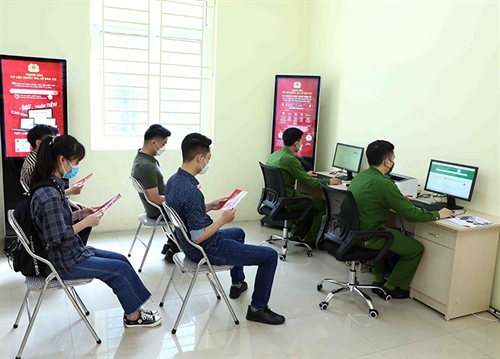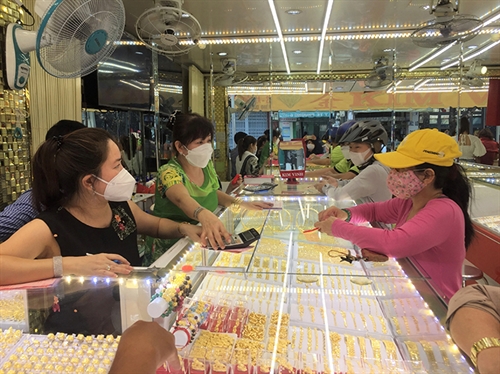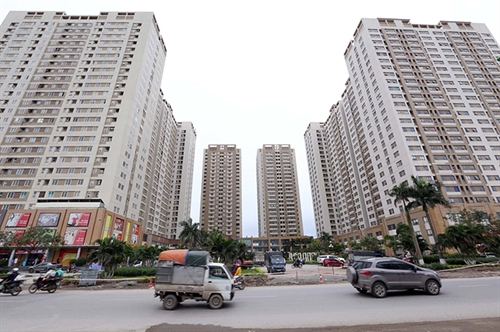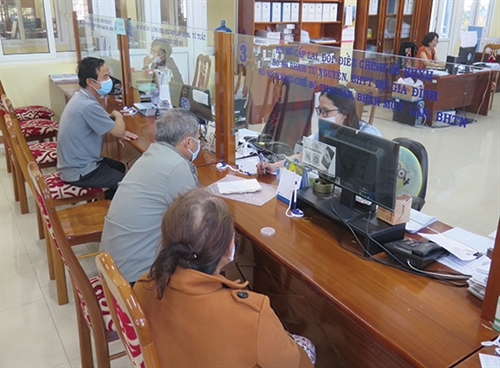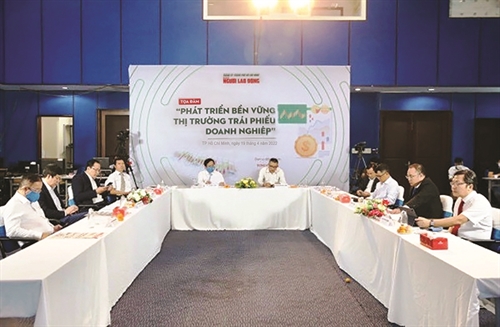Mobile phone subscribers whose personal information does not match the National Population Database will be blocked from March 31.
This is considered a solution for tackling incremental increase of phone scams which have recently reached an alarming level and require strict handling measures from authorities.
Although the incident has passed for many days, T.T.D., a resident of Tan Binh district, Ho Chi Minh City, is still in shock. “On March 3, while I was in Hanoi on a business trip, my wife received a call from an unknown number. The person on the line said our son had fallen and been taken to Cho Ray Hospital’s Emergency Department and pressed my wife to transfer money to make advanced payment for our son’s operation. Filled with terror, my wife immediately transferred 50 million dong to the account such person designated without thinking too much. Like my wife, I could hardly compose myself when hearing the news and immediately ran to the airport. After a while when I calmed down, I called my son’s teacher and learnt that there was no accident, my son was still at school. At that time, I realized that my wife was cheated. It was not simply about money but the scammer nearly gave us a heart attack.” D. shared his unpleasant experience with Thanh Nien newspaper.
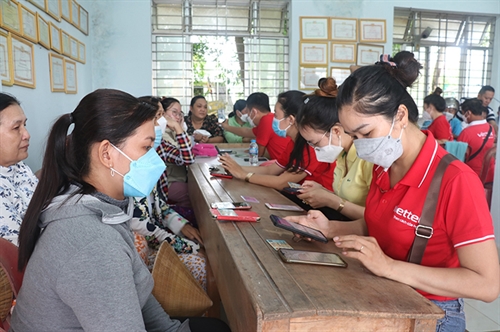 |
| People in Ben Tre province carry out procedures for registration of mobile subscriber information__Photo: Chuong Dai/VNA |
D. was not the only one who fell into the trap. From the beginning of March, hundreds of parents in various localities around the country received scam calls with the same scenario. Despite warnings from the authorities, schools and hospitals, not a few people were still tricked and lost hundreds of millions of dong to fraudsters. In all cases, it was impossible to trace scammers from the phone numbers they used.
Of course, phone scammers also need other tools in addition to junk SIMs, e.g., victims’ personal data, which are usually hacked or illegally leaked, and bank accounts which, in most cases, are untraceable. However, it is undeniable that a junk SIM is the first necessary and sufficient condition of phone frauds.
“Scammers can use junk SIMs to make scam calls and text messages as well as create a series of tools necessary for their fraudulence such as chat app accounts and e-wallet accounts,” Ngo Minh Hieu, co-founder of a project titled “Chong Lua dao” (Fighting Phishing) told Tuoi Tre newspaper, adding that as the location of a SIM constantly changes and the SIM can easily be destroyed after a period of use, it is very difficult to find out who is behind.
At the 14th session of the National Assembly Standing Committee in last August, the Ministry of Public Security also pointed out junk SIMs, illegal purchase and sale of bank accounts and the lack of solutions to manage VoIP calls as difficulties in the prevention and combat of hi-tech crimes, fraud and property appropriation.
Rampancy of junk SIMs in the market and reasons behind
Even though the Ministry of Information and Communications (MIC) has asked mobile network operators to tighten management of prepaid mobile phone subscribers and to prohibit the trading in pre-activated SIMs, anyone can easily buy SIMs without having to make registration.
Early this month, when Tuan Hung stopped off at a store in Nam Tu Liem district, Hanoi, to buy a SIM, the seller first asked him to produce his citizen identity card to carry out subscriber registration. “But when I said I forgot my personal papers and just needed a SIM to access the Internet, the seller hesitated for a moment but finally gave a SIM card to me,” Hung told Tuoi Tre.
Hung installed the SIM to his smartphone and could use services immediately. When looking up on the carrier’s website, he found that the SIM had been registered under someone else’s name and activated more than a year ago. “That’s not a problem because I just use it as a secondary SIM,” Hung said.
Under Government Decree 49 of 2017, mobile subscribers must register their identification information with network operators. In 2021, when the Government issued Decree 25 revising Decree 49, it required telecoms enterprises to connect their subscriber information databases with databases of the MIC and the Ministry of Public Security. Network operators will firstly suspend outgoing services and then terminate both incoming and outgoing services if subscribers fail to update information as requested.
However, in fact, users can easily buy SIMs pre-activated with others’ information.
The Lam, the owner of a phone shop in Vinh Phuc province, said most telecoms service users know that they need to register personal information. However, as many just want to buy secondary SIMs or data SIMs for use for a short time, they shilly-shallied about registration of personal information and hence pre-activated SIMs meet their need.
Not only in retail stores, pre-activated SIMs are also publicly sold on social networks and e-commerce sites. On TikTok, a shop emphasizes “no registration needed” as an advantage of their products. On Shopee, there are hundreds of stores selling SIMs, many of which have sold hundreds of thousands of “ready-to-use” products.
According to a telecommunications expert, there is no official definition of “junk SIM”. This term emerged from the boom of the mobile market in Vietnam more than a decade ago. At that time, users bought SIMs and threw them away when they run out of promotions and buy new ones, so they are considered “junk”. For the time being, under the new regulations, network operators must collect user information for every subscriber. A “junk” SIM is now understood as a pre-activated SIM with incorrect user information. The common thing is that buyers have no intention of using these SIMs for a long term and may discard them away at any time, as in the case of Hung or Lam’s customers. These “junk” SIMs are also used by scammers and advertisers because it is difficult to find out the real users behind them.
Where there is demand, there will always be supply. Many people sign up for a large number of SIMs, then sell them to others without regard to their intended use. Meanwhile, telecoms carriers’ sales staffs, for the sake of turnover, arbitrarily activate SIMs with available information.
In September 2022, seven network operators were administratively sanctioned with an aggregate fine of VND 3 billion for violations in management of subscriber information.
“Particularly, there are some persons registering thousands of SIMs,” the MIC revealed, citing this phenomena, together with carriers’ negligence in verification of subscriber information, as one of the reasons behind the availability of “junk” SIMs in the market.
Time to tighten the registration of subscriber information
At a meeting on the standardization of subscriber information held on March 13 in Hanoi, Nguyen Phong Nha, Deputy Director of the MIC’s Authority of Telecommunications, affirmed that competent authorities always keep a close eye on the situation. He said that by June 2022, telecoms enterprises have standardized subscriber information but such information has not yet been fully checked against the National Population Database. Therefore, from now to March 31, network operators will review subscriber information and ask subscribers to have their personal data standardized to make them match the Database.
Earlier, at the National Assembly’s question-and-answer session in November 2022, Minister of Information and Communications Nguyen Manh Hung asserted that his ministry was focusing on dealing with “junk” SIMs in order to prevent phone scams.
According to the minister, there are three major stages in eliminating “junk” SIMs: collecting subscriber information; checking subscriber information against the National Population Database; and handling the use of SIMs registered under others’ names.
“Once these stages are completed, spam calls and texts and phone scams will be significantly prevented,” Hung said.
According to statistics of the Authority of Telecommunications, there are now approximately 127 million mobile subscribers in Vietnam, of which just around four million are registered with inaccurate information.-
